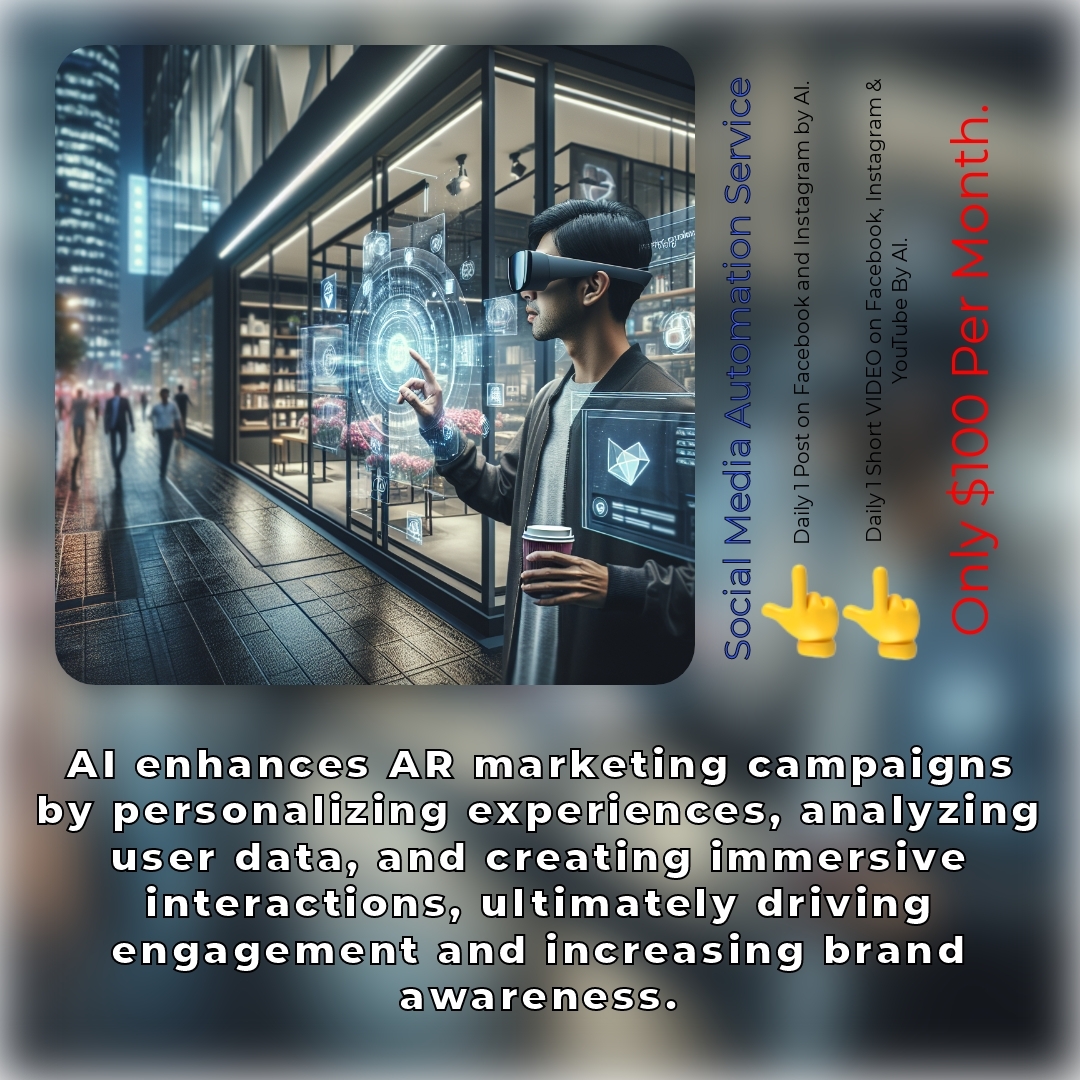Technology has profoundly transformed marketing strategies, and augmented reality (AR) marketing stands out in this evolution. Defined as a blend of digital and physical worlds, AR marketing is reshaping how brands connect with consumers. This article explores the innovative AR campaigns brands are employing to enhance consumer engagement and elevate the customer experience.
“Embrace AI-driven AR to create unforgettable marketing experiences today.”

What is Augmented Reality in Marketing?
Augmented Reality (AR) in marketing refers to the technology that overlays digital information—like images, sounds, and other sensory enhancements—onto the real world. While some might confuse it with Virtual Reality (VR), which entirely immerses you in a computer-generated environment, AR complements our reality. This distinction is crucial for brands looking to stand out in a crowded digital landscape. By embracing augmented reality, businesses can differentiate their brands and add an innovative twist to their marketing strategies.
Benefits of Augmented Reality Advertising for Brands
There are numerous perks for brands tapping into augmented reality advertising. Here are a few standout benefits:
- Enhancing Customer Experience: AR creates immersive experiences, allowing consumers to visualize products in their own environment—imagine trying on virtual clothes or seeing how a piece of furniture looks in your living room before buying.
- Increased Brand Awareness through AR: Unique visual content is a game-changer. Brands that utilize eye-catching AR are more likely to capture attention and be remembered by consumers.
- Interactive Marketing: AR encourages participation, making consumers active players in their shopping experience. People love interacting with brands in a fun and engaging way!
How to Use Augmented Reality in Marketing Campaigns
If you’re considering how to use augmented reality in marketing campaigns, there are several strategies to adopt:
- Integrate AR Experiences: Enhance your existing digital marketing efforts by incorporating AR features. This could be through social media filters or QR codes that lead to AR experiences.
- Enhance Product Demos: Use AR to create enhanced demonstrations of products. Consumers can virtually ‘try’ the product, making informed purchase decisions.
Examples of Successful AR Marketing Campaigns
Let’s take a look at some noteworthy examples of successful AR marketing campaigns:
- IKEA Place: This app allows customers to see how furniture would look in their own space using AR technology. It’s not just convenient but also significantly boosts purchase confidence.
- Pokemon GO: While primarily a game, its marketing strategies have successfully pulled brands into the AR realm, creating giant outdoor events and promotions that engage a large audience.
These campaigns have demonstrated impressive results, showcasing how AR can transform consumer engagement and interaction.
AR Campaigns in Practice: Engaging Consumers
Engaging consumers through immersive experiences is essential in today’s digital marketing arena. By employing AR campaigns, brands can create memorable interactions that build customer loyalty. Here are some methods to drive that consumer engagement:
- Gamification: Integrate game-like elements into your AR campaigns to encourage interaction and repeat visits.
- Personalized Experiences: Tailor AR experiences based on consumer preferences. The more personalized the experience, the more engaged consumers will feel.
The Future of Augmented Reality in Digital Marketing
The landscape of digital marketing is continuously evolving, and augmented reality is poised to be at the forefront. As AR technology advances, we can expect:
- More Accessibility: With better smartphone cameras and faster internet, AR will become more accessible to the average consumer.
- Integration with AI: The combination of AR and artificial intelligence will allow brands to deliver more personalized user experiences.
These trends indicate that the future of augmented reality in digital marketing will be increasingly interactive and engaging.
Frequently Asked Questions (FAQs)
Let’s address some common inquiries regarding augmented reality in marketing:
How can AR improve the customer journey?
AR enhances the customer journey by providing interactive and immersive experiences, making decision-making easier and more enjoyable.
What are the costs associated with AR campaigns?
While costs can vary widely based on complexity, many brands find that the investment pays off through increased engagement and sales.
Can augmented reality animate visual content?
Absolutely! AR can bring static content to life, providing dynamic interactions that captivate consumers and enhance storytelling.
With all these benefits of augmented reality advertising for brands, it’s clear that integrating AR into your marketing strategy can significantly enhance engagement and brand loyalty.
Conclusion
As we’ve explored, augmented reality marketing is revolutionizing how brands engage with their consumers. By embracing this technology, businesses can enhance their strategies, create memorable experiences, and ultimately stay competitive in the rapidly evolving digital landscape. The importance of augmented reality in marketing cannot be overstated—it’s not just a trend; it’s the future of consumer engagement.
Frequently Asked Questions (FAQs)
How can AR improve the customer journey?
AR enhances the customer journey by providing interactive and immersive experiences, making decision-making easier and more enjoyable.
What are the costs associated with AR campaigns?
Costs can vary widely based on the complexity of the campaign, but many brands find that the investment pays off through increased engagement and sales.
Can augmented reality animate visual content?
Absolutely! AR can bring static content to life, offering dynamic interactions that captivate consumers and enhance storytelling.
Is AR suitable for all types of businesses?
Yes, AR can be used by various industries, including retail, real estate, and education, to enhance marketing strategies and consumer engagement.
What are some popular AR applications in marketing?
- Interactive product demos
- Virtual try-ons for fashion and accessories
- Gamified experiences that encourage user participation
How do consumers generally respond to AR marketing?
Consumers often find AR marketing engaging and memorable, leading to higher brand recall and increased purchase intent.









